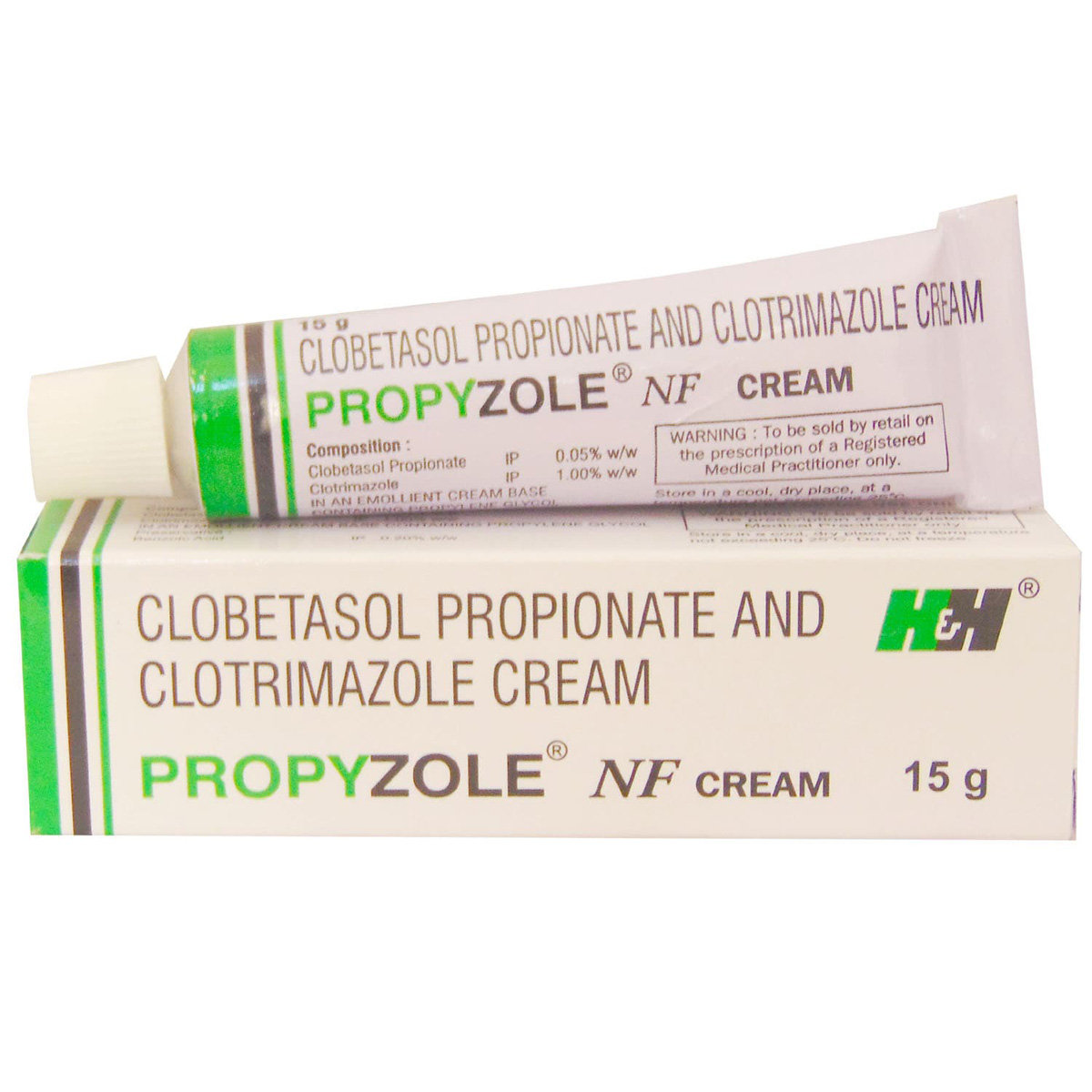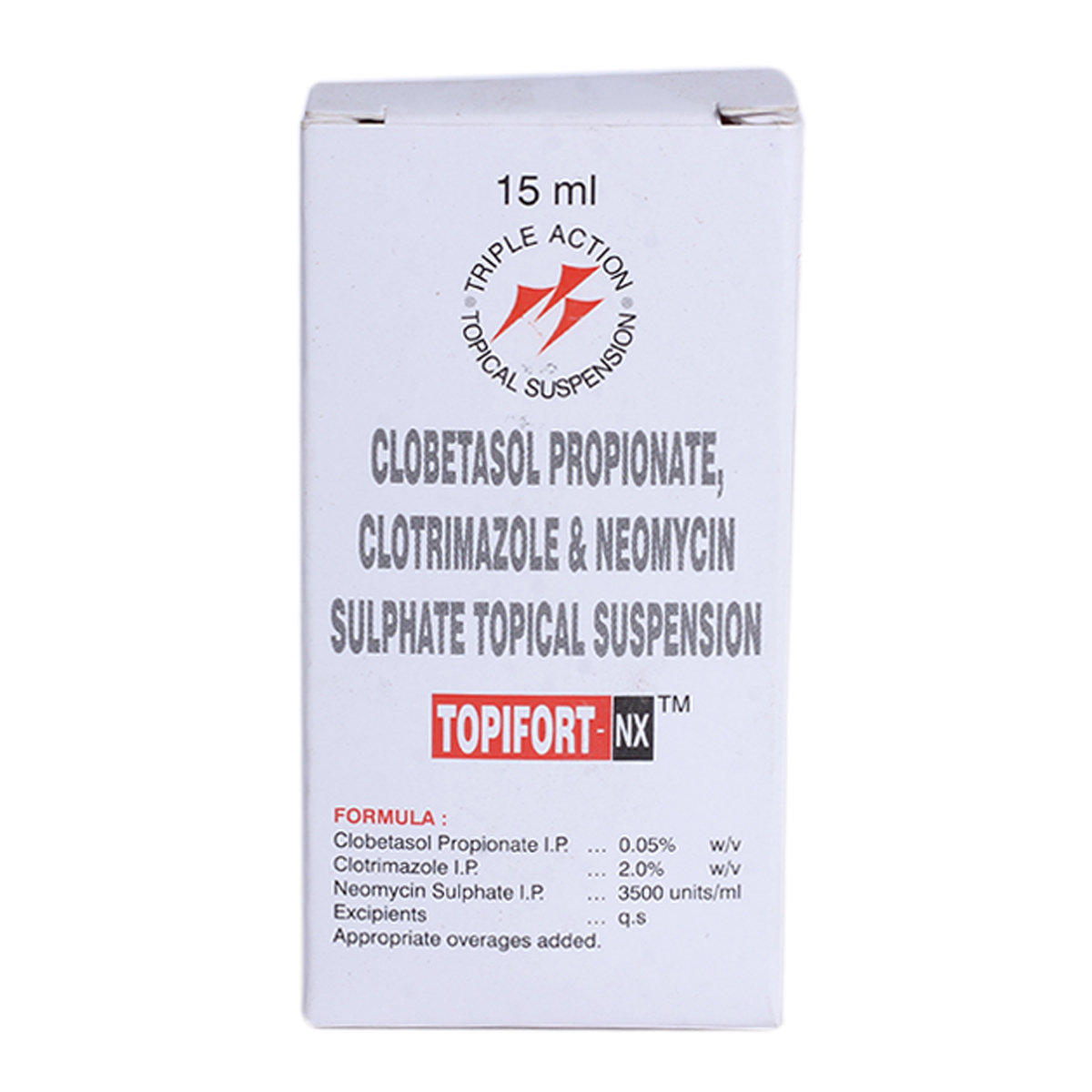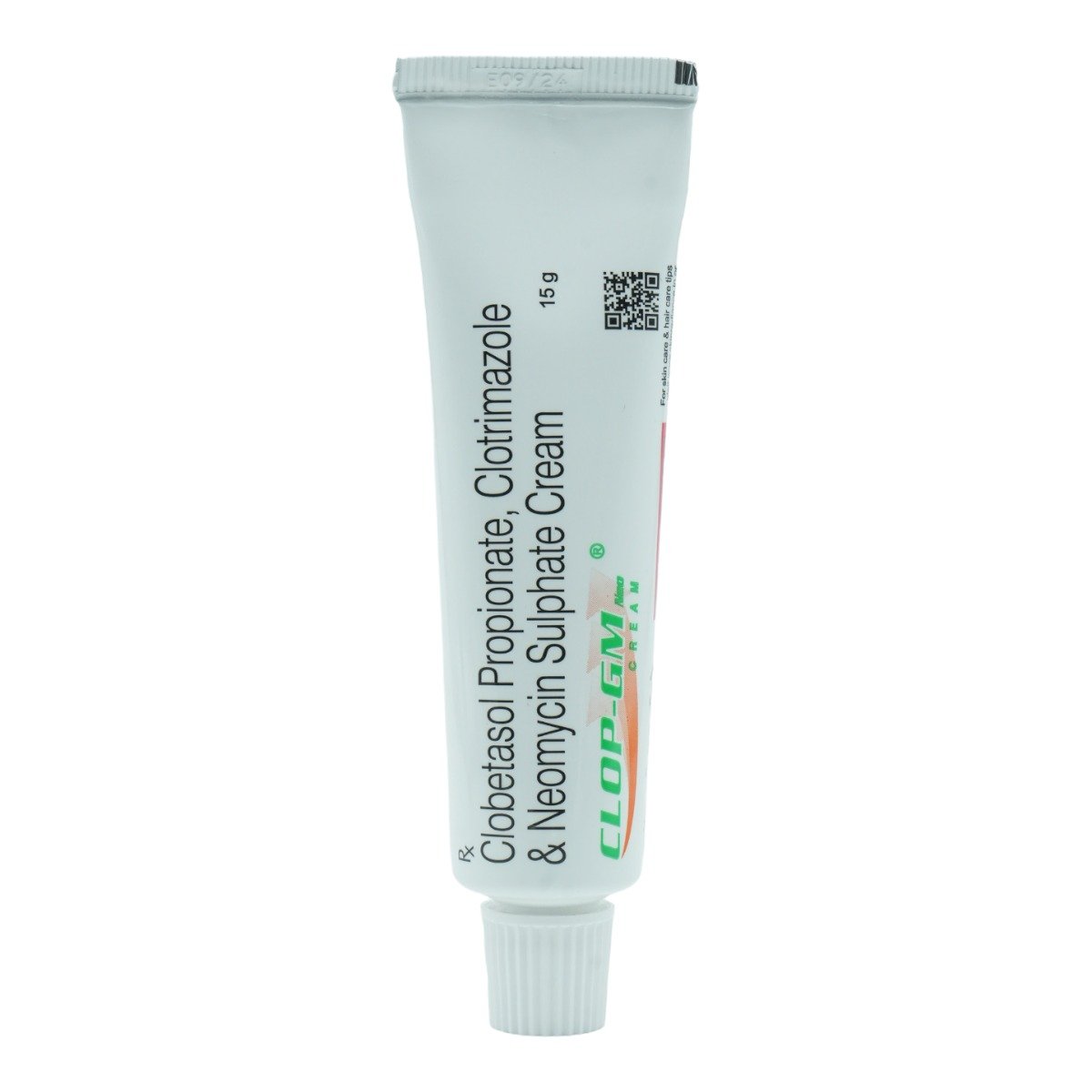Clobetasol+clotrimazole
About Clobetasol+clotrimazole
Clobetasol+clotrimazole belongs to the class of dermatological medication, primarily used to treat fungal skin infections. Fungal infection occurs when a fungus invades and affects the tissue on the skin. Fungi can live in the air, soil, water and plants. Symptoms of a fungal infection include skin rash, irritation, redness and scaling of the skin.
Clobetasol+clotrimazole consists of two medicines, namely: Clobetasol (corticosteroid) and Clotrimazole (antifungal). Clobetasol is a highly potent corticosteroid with anti-inflammatory, antipruritic (relieves itching) and vasoconstrictive (narrows blood vessels) properties. It blocks the production of chemical mediators of inflammation (such as kinins, histamine, liposomal enzymes, and prostaglandins) that make the skin red, swollen and itchy. On the other hand, Clotrimazole is an antifungal medication that stops the growth of fungi by causing damage and leakage to the fungal cell membrane. It is also used to treat athlete’s foot (fungal infection between the toes due to sweating) and jock itch (fungal infection in the skin of the genitals, inner thighs and buttocks).
Use this medication on the skin only as advised by the doctor. Common side effects of Clobetasol+clotrimazole are burning, irritation, itching, redness and thinning of skin at the application site. These side effects do not require medical attention and gradually resolve over time. If these side effects persist longer, please consult your doctor.
Avoid contact with your eyes, nose or mouth while using Clobetasol+clotrimazole. Rinse it off with water thoroughly if you get the cream in these areas. Brief your medical history to doctor, if you are allergic to Clobetasol+clotrimazole or any of its components. Therapy with topical corticosteroids like Clobetasol should be administered cautiously in patients with bacterial, fungal, viral and protozoa infections. Let your doctor know if you have any medical history of liver, kidney diseases, glaucoma, cataract, poor blood circulation, immune system problems, diabetes and adrenal gland diseases. Please consult your doctor if you are a pregnant or breastfeeding woman before using Clobetasol+clotrimazole.
Uses of Clobetasol+clotrimazole
Medicinal Benefits
Clobetasol+clotrimazole treats fungal skin infections and is a combination of two medicines, namely: Clobetasol and Clotrimazole. Clobetasol is a highly potent corticosteroid with anti-inflammatory, antipruritic (relieves itching) and vasoconstrictive (narrows blood vessels) properties. It blocks the production of chemical mediators of inflammation that make the skin red, swollen and itchy. It effectively treats inflammation and itching caused by plaque psoriasis (skin cells build up to form itchy scales and dry patches) and other skin conditions. Clotrimazole is an antifungal medication that treats fungal infections like vaginal yeast infections, oral thrush and ringworm. It stops the growth of fungi by causing damage and leakage to the fungal cell membrane.
Directions for Use
Storage
Side Effects of Clobetasol+clotrimazole
- Burning
- Irritation
- Itching
- Redness
- Thinning of skin
Drug Warnings
Brief your medical history to doctor, if you are allergic to Clobetasol+clotrimazole or any of its components. Let your doctor know if you have any history of liver, kidney diseases, glaucoma, cataract, poor blood circulation, immune system problems, diabetes and adrenal gland diseases. Clobetasol+clotrimazole is not recommended for diaper rash. Pregnant and breastfeeding women should use Clobetasol+clotrimazole with proper consultation and caution. Do not use Clobetasol+clotrimazole on the face and avoid contact with eyes, nose and throat. Rinse it off with water thoroughly if you get the cream in these areas. Do not put a bandage or a dressing on the affected area while using Clobetasol+clotrimazole unless advised by the doctor. Always wash hands before and after application of Clobetasol+clotrimazole. Do not store Clobetasol+clotrimazole above 25°C.
Drug Interactions
Drug-Drug Interaction: Clobetasol+clotrimazole may interact with other corticosteroids (prednisone), respiratory-related medicines (budesonide, formoterol) and drugs that lower the immune system (cyclosporine).
Drug-Food Interaction: No interactions found.
Drug-Disease Interaction: Clobetasol+clotrimazole is contraindicated in fungal, viral, protozoa infections, liver, kidney diseases, glaucoma, cataract, poor blood circulation, immune system problems, diabetes and adrenal gland diseases.
Drug-Drug Interactions Checker List:
Safety Advice

Alcohol
safe if prescribedNo interaction found of Clobetasol+clotrimazole with alcohol.

Pregnancy
cautionThere is limited data on how the Clobetasol+clotrimazole affects pregnancy. Clobetasol+clotrimazole may be unsafe to use during pregnancy since it affects the baby. Please consult your doctor if you are planning to become pregnant or already pregnant before starting Clobetasol+clotrimazole.

Breast Feeding
cautionIt is not known if Clobetasol+clotrimazole passes into the breast milk. Please consult your doctor before taking Clobetasol+clotrimazole if you are breastfeeding. If you need to apply the cream or ointment on your breasts, don't do this shortly before giving a feed.

Driving
safe if prescribedThere have been no studies to investigate the effect of Clobetasol+clotrimazole on driving performance or the ability to operate machinery.

Liver
cautionLet your doctor know if you have any history of liver diseases before taking Clobetasol+clotrimazole.

Kidney
cautionLet your doctor know if you have any history of kidney diseases before taking Clobetasol+clotrimazole.

Children
unsafeClobetasol+clotrimazole is not recommended for children less than 12 years of age.
Habit Forming
Diet & Lifestyle Advise
- Always wear loose-fitting clothes to avoid further sweat and the spread of the fungal infection.
- Regularly change your socks and wash your feet. Avoid shoes that make your feet sweaty and hot.
- Do not walk barefoot at places like gym showers to prevent fungal infections.
- Do not scratch the affected area of the skin as it can spread the infection to other body parts.
- Avoid sharing towels, combs, bedsheets, shoes or socks with others.
- Wash your bed sheets and towels regularly.
- Avoid or limit the intake of alcohol and caffeine.
- Do not scratch or pick your skin to avoid getting the affected area infected.
- Manage stress, eat healthily, drink plenty of water, exercise regularly, and sleep peacefully.
- Use mild soap while taking baths and prefer warm baths.
Special Advise
- Corticosteroids like Clobetasol may affect blood sugar levels. Please monitor your blood glucose levels regularly if you have diabetes and using Clobetasol+clotrimazole.
- Clotrimazole in Clobetasol+clotrimazole may cause abnormal liver functions tests in people with liver impairment. Please let your doctor know if you have any history of liver diseases before undergoing liver function tests and using Clobetasol+clotrimazole.
Patients Concern
Disease/Condition Glossary
Fungal infection: A fungal infection (also called mycosis) is a skin disease caused by a fungus when it invades the skin tissue. Fungi can live in the air, soil, water, and plants. Symptoms of a fungal infection include skin rash, irritation, redness and scaling of the skin. Athlete's foot: It is a fungal infection between the toes due to sweating. Jock itch: A fungal infection in the skin of the genitals, inner thighs and buttocks.
FAQs
Clobetasol+clotrimazole contains Clobetasol and Clotrimazole. Clobetasol is a corticosteroid that provides relief from itching and redness of infection. Clotrimazole is an antifungal drug that treats various fungal skin infections by killing and preventing fungi growth.
Clobetasol+clotrimazole is for topical (for skin use) application only. Do not use Clobetasol+clotrimazole on the face and avoid contact with eyes. Do not put a bandage or a dressing on the affected area while using Clobetasol+clotrimazole unless advised by the doctor.
Clobetasol+clotrimazole consists of Clobetasol, a corticosteroid that affects the blood sugar levels. It is advised to consult your doctor before using Clobetasol+clotrimazole and monitor your blood sugar levels regularly.
Clobetasol+clotrimazole should be used with proper caution and doctor consultation if you have any bacterial, fungal, viral and protozoa infections, liver or kidney diseases, glaucoma, cataract, poor blood circulation, immune system problems, diabetes and adrenal gland diseases.
Do not stop using Clobetasol+clotrimazole even if you feel better until the doctor's advised course is finished. Your symptoms may improve, but the infection may not be cured completely.
Clotrimazole in Clobetasol+clotrimazole may cause abnormal liver functions tests in people with liver impairment. Please let your doctor know if you have any history of liver diseases before undergoing any liver function tests.






